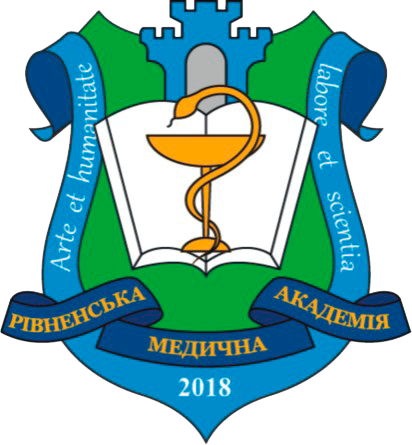ВИЗНАЧЕННЯ КЛЮЧОВИХ ПРІОРИТЕТІВ ДЛЯ РОЗВИТКУ ЕРГОТЕРАПІЇ В УКРАЇНІ
DOI:
https://doi.org/10.32782/health-2024.2.25Ключові слова:
ерготерапія, розвиток, пріоритети, реабілітація, соціальна реінтеграція.Анотація
Актуальність. Визначення ключових пріоритетів для розвитку ерготерапії в Україні є нагальною потребою вдосконалення системи медичної та соціальної реабілітації населення, особливо в умовах війни з Росією. Поширення травматичних подій і психологічний стрес мешканців України зумовлюють потребу в розробці ефективних стратегій ерготерапії для покращення якості життя постраждалих. Завдяки аналізу й визначенню ключових напрямів розвитку ерготерапії можна ефективно вдосконалити програми реабілітації та забезпечити доступність цієї важливої послуги для всіх груп населення України. Мета – визначення основних напрямів і стратегій для розвитку ерготерапії в Україні з урахуванням наявних проблем у цій галузі. Матеріали та методи. Використано комплексний підхід, який передбачав аналіз наукових публікацій, огляд сучасних програм ерготерапії, а також проведення експертних опитувань серед кваліфікованих практикуючих ерготерапевтів і представників органів управління охорони здоров’я. Методологія дослідження містила систематичний огляд літератури, анкетування й аналіз отриманих даних із метою визначення найбільш актуальних пріоритетів для подальшого розвитку ерготерапії в Україні. Результати дослідження. Встановлено, що до ключових пріоритетів для подальшого розвитку ерготерапії в Україні належить удосконалення підготовки спеціалістів, покращення матеріально-технічної бази, а також удосконалення нормативного регулювання та фінансування цієї сфери реабілітації. Ключовим питанням є збільшення доступності цієї послуги для населення, особливо для осіб з обмеженими можливостями. Важливим аспектом також є підвищення кваліфікації фахівців ерготерапії та впровадження сучасних методик і технологій у практику. Крім того, дослідження вказує на необхідність створення національної стратегії розвитку ерготерапії, яка б враховувала специфічні потреби та можливості українського суспільства. Висновки. Результати дослідження свідчать про важливість забезпечення доступності ерготерапії для всіх верств населення та на потребу в системному підході до підвищення якості й ефективності цієї реабілітаційної послуги. Знайдені пріоритети стануть основою для розробки ефективних програм і заходів із підтримки та розвитку ерготерапії в Україні з метою покращення здоров’я та якості життя громадян.
Посилання
Федорівська Л. П., Чурпій І. К., Голод Н. Р., Янів О. В., Кравчук М. І. Сучасний стан ерготерапії в Україні. Art of Medicine. 2022. № 21 (1) (Квітень 2022). С. 154–160. DOI: https://doi.org/10.21802/artm.2022.1.21.154.
Дека І. П., Огнистий А. В., Петрица П. М. Можливості впровадження канадського досвіду професійної підготовки ерготерапевтів в Україні. Rehabilitation and Recreation. 2023. № 14, с. 37–48. DOI: https://doi.org/10.32782/2522-1795.2023.14.4.
Купріненко О. Аналіз сучасного стану та проблем ерготерапії військовослужбовців збройних сил України постраждалих в результаті бойових дій. Український журнал медицини, біології та спорту. 2020. Том 5, № 4 (26). С. 36–43. DOI: https://doi.org/10.26693/jmbs05.04.036.
Kraft H.S. Rehabilitation and recovery after combat trauma: The new normal Work. A Journal of Prevention, Assessment & Rehabilitation. 2015. № 50 (1). P. 5–7. DOI: https://doi.org/10.3233/WOR-141931.
Brown H.V, Hollis V. The meaning of occupation, occupational need, and occupational therapy in a military context. Phys Ther. 2013. Volume 93. Issue 9, 1 September 2013. P. 1244–1253. DOI: https://doi.org/10.2522/ptj.20120162.
Eakman A.M, Radomski M.V. Occupational therapy past and present: Responding to physical, cognitive and emotional consequences of war. British Journal of Occupational Therapy. 2017. Volume 80. Issue 12. Р. 697–698. DOI: https://doi.org/10.1177/0308022617712198/
World Federation of Occupational Therapists (WFOT). Minimum Standards for the Education of Occupational Therapist [Internet]. 2016. Available from: https://www.wfot.org/assets/resources/ COPYRIGHTED-World-Federation-of-Occupational-Therapists-Minimum-Standards-for-the-Education-of-Occupational-Therapists-2016a.pdf/
Overcoming barriers to accessing rehabilitation in Ukraine amidst conflict. 5 April 2023 https://www.who.int/europe/news/item/05-04-2023-overcoming-barriers-to-accessing-rehabilitation-in-ukraine-amidst-conflict/
Право на реабілітацію. Інформаційний бюлетень, жовтень 2020 № 9 (12). Ольга Мангушева. Допомогти робити найважливіше. C. 4–5. https://naiu.org.ua/wp-content/uploads/2020/10/Pravo-na-reabilitatsiyu.-Vypusk-912-zhovten-2020.





